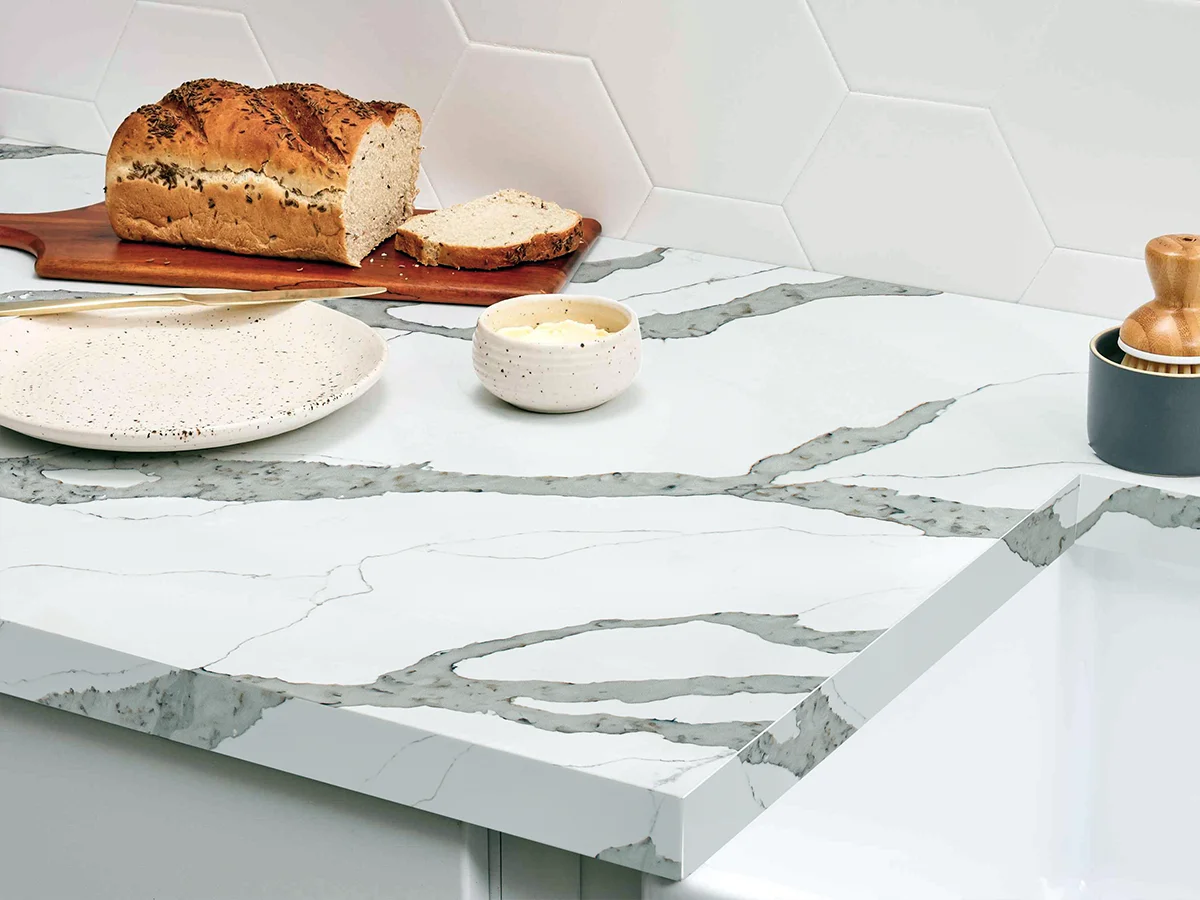Choosing a countertop in Vienna requires evaluating your design preferences, maintenance capabilities, budget, and lifestyle needs to select between natural stone and engineered materials.
When planning for a kitchen or bathroom renovation, your countertop material choice becomes one of the most critical decisions you'll make. Recent industry data shows that 46% of homeowners favor engineered quartz for their kitchen renovations, while natural stone maintains strong appeal among luxury buyers.
This four-part blog series explores the differences between natural stone and engineered materials, focusing on the most popular categories within each group. Starting with natural stones, there are four key reasons this option might work best for your project.
Do You Want Colorful or Unique Patterns?
Most engineered stones imitate marble, as it's the most popular natural stone homeowners want to recreate without maintenance concerns. While granite and quartzite imitations exist, stunning natural slabs offer unmatched beauty. Natural stone provides colors, textures, and unique movement patterns across your surface that manufactured materials struggle to replicate.
Each natural slab tells its own story through distinctive veining and color variations. Granite countertops display remarkable diversity, from deep blacks with silver flecks to warm golds with intricate patterns. Quartz countertops manufactured to mimic these patterns often appear too uniform or symmetrical.
Are Your Counters a Main Design Feature?
Featured counters should showcase patterns you truly love. Are you planning a full-height matching backsplash? A large island with waterfall edges or thick mitered details? A luxurious vanity in your master bathroom? A surround for your soaking tub? Shower walls? An entertainment bar? Fireplace highlights?
When countertops become focal points, natural stone makes these areas pop with authentic character. The investment in natural materials pays off through increased visual impact and property value. Premium natural stones like Calacatta marble or exotic granites create wow factors that engineered alternatives cannot match.
Can You Handle the Required Upkeep?
All natural stones require some maintenance, depending on the type of stone you select. Most people think immediately of marble's challenges when considering natural stone, since marble stains and scratches easily. However, maintenance for most natural stones remains minimal.
Natural stone countertops need sealing every few years to maintain their protective layer applied during installation. They're porous, meaning spills can stain if left too long. Darker stones show fewer stains than lighter varieties. Follow basic protective measures, like using hot plates, clean spills promptly, and avoiding cutting directly on surfaces.
Your specific material determines how closely you must follow these rules. Granite requires less attention than marble, while quartzite offers durability between the two options.
Are You Ready for Premium Natural Stone Pricing?
When clients ask about engineered versus natural stone, cost differences usually come up first. The common misconception suggests granite costs less than quartz. While basic builder-grade colors like "uba tuba" are affordable, natural stones with vibrant, unique patterns generally cost more than high-end engineered materials.
According to recent market analysis, the US countertop market reached $86.4 billion in 2025, with engineered quartz accounting for 28.6% of material demand. However, premium natural stones command higher prices due to rarity and quarrying costs. Natural stone prices range from $40 to $100 per square foot for materials alone.
Have your contractor price several appealing stones to understand costs. Most fabricators group stones by price levels, making budget tracking easier during selection. Remember that kitchen remodeling investments typically return 70-80% of their value at resale.
Popular Natural Stone Options
Granite remains the most requested natural stone, offering exceptional heat resistance and durability. Each slab provides unique patterns created by volcanic processes over millions of years. Granite works well with both traditional and contemporary designs.
Marble delivers unmatched elegance with its distinctive veining patterns. While requiring more maintenance than granite, marble's cool surface makes it ideal for baking. Carrara, Calacatta, and Statuario varieties each offer different aesthetic appeals.
Quartzite combines granite's durability with a marble-like appearance. This metamorphic stone resists scratches and heat while providing beautiful patterns. Popular varieties include White Ice, Super White, and Taj Mahal.
How to Make Your Final Decision
Answering "yes" to most previous questions suggests natural stone suits your project. While good engineered imitations exist, printed patterns cannot replicate nature's authentic beauty. Higher-end natural stones give kitchens and bathrooms wow factors that everyday quartz countertops cannot duplicate.
Granite countertops offer the best balance of durability, beauty, and value among natural options. They resist heat, scratches, and stains better than marble while maintaining the natural character that engineered surfaces lack.
Conclusion
Stay tuned for part two, where we'll discuss various natural stone types currently available. If you're debating which countertop suits your needs, contact a design consultant. Professional guidance helps navigate the many choices to find your perfect surface.
Call us at (703) 388.9088 for expert countertop selection assistance. Mayflower Construction provides comprehensive design consultation services to help you choose the ideal materials for your renovation project.
